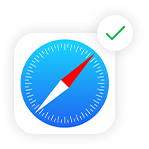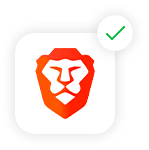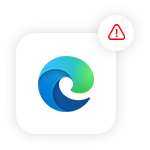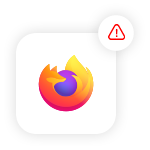Your browser is exposing IP addresses to sites that you visit.
| IP address | Provider | Provider |
|---|---|---|
| 172.253.11.1 | Google LLC | Switzerland |
Your private information may be compromised, even if you're using a VPN.
DNS is said to be the Domain Name System, and it's said to be the phonebook of the internet. All the public domains on the internet are connected through DNS servers.
DNS is used to translate the domain name into an IP address for you to see the proper content of a page you are accessing. Since browsers communicate through IP addresses but the users are accessing through domain names, the DNS server comes in.
A DNS leak is when your DNS queryDNS protects your online anonymity and is responsible for turning IP addresses into domain names. Now imagine your online activity being tracked by an unauthorized entity because your DNS was leaked. A DNS leak can;
Get started with OysterVPN at just $9.99 per month. Connect up to 5 devices simultaneously with just one subscription and experience true freedom.





